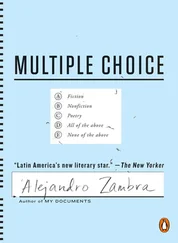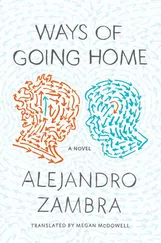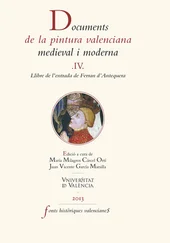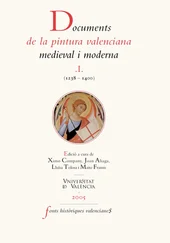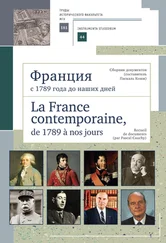I liked the language of Mass, but I didn’t understand it very well. When we got to the part where we asked for forgiveness and said, “Through my fault, through my fault, through my most grievous fault,” I mistook the word fault for thought , and that strange insistence on the evils of thinking impressed me, stayed with me. Then there was the sentence “I am not worthy to receive you,” which I said once to my grandmother while opening the door. “I am not worthy to receive you in my house” was how I repeated the joke later to my father, who answered right away, with a sweet and severe smile: “Well thank you, but this house is mine .”
At Mater Purissima there was a chorus of six singers and two guitar players that had a starring role in the Mass, because even the “Let us give thanks to God” and the “We praise you, Lord” and the “Hear us, Lord, we beg you” were all sung. My ambition was to join that choir. I was only eight years old, but I could play the little guitar we had at our house reasonably well: I strummed with a sense of rhythm, I could play scales, and though a nervous tremor overcame me when it was time to play a barre chord, I still got an almost-full sound out of it, only slightly impure. I guess I thought I was good, or good enough that I could, one morning after Mass, guitar in hand, approach the members of the chorus. They looked down at me, perhaps because I was very small, or maybe because they were a fully functioning mafia, but they neither accepted nor rejected me. “We have to give you a tryout,” said a blond woman with dark circles under her eyes who played an extraordinarily large guitar.
“Let’s do it now,” I proposed. I had some songs I’d practiced, among them the “Our Father,” which was often sung to the tune of “The Sounds of Silence,” but she refused.
“Next month,” she told me.
5
My mother had grown up listening devotedly to the Beatles, and to a repertoire of Chilean folk music, and then she had moved on to hits by Adamo, Sandro, Raphael, and José Luis Rodríguez, which was more or less what you listened to on AM stations at the beginning of the eighties. She had stopped looking for music that was new — or new to her — until she came across the live recording of Paul Simon and Art Garfunkel’s reunion concert in Central Park. Her life changed then, I think forever: overnight, and with remarkable speed, the house filled with albums that were difficult to acquire, and she took up studying English again, maybe just so she could understand the lyrics.
I remember her listening to the BBC English course — which came in binders that held dozens of cassette tapes — or to the other course we had in the house, The Three Way Method to English: two boxes, one red and the other green, each with a notebook, a book, and three LPs. I’d sit beside her and listen distractedly to those voices. I still remember some fragments, like the man who would say, “These are my eyes,” and the woman who would reply, “Those are your eyes.” The best part was when the masculine voice asked, “Is this the pencil?” and the woman answered, “No, this is not the pencil, but the pen,” and then, when the man asked, “Is this the pen?” she answered, “No, this is not the pen, but the pencil.”
I tend to think that every time I came home, some song by Simon and Garfunkel, or Paul Simon solo, was playing in the living room. When Graceland appeared, in 1986, my mother was definitely already Simon’s most fervent Chilean fan, an expert on the singer’s life events, like his failed marriage to Carrie Fisher and his bit part in Annie Hall . My father was surprised that his wife had so suddenly become a fan of this music that he — who back then was listening exclusively to Argentine zambas — didn’t like at all. “I should have my own room,” I heard my mother saying one night, sobbing, after an argument that started after she hung up some posters and photos in the master bedroom, provoking the ire of my father, who, in the end, had to resign himself to those images of other men looming over his marital bed.
6
On weekends in the spring, and even sometimes in the summer, I went with my aunts and uncles and cousins to fly kites on Hill 15. It was all very professional: my father had moved on from hanging the kite string between two trees and treating it with crushed glass, like he did when he was a kid, to hooking two big spools up to a motor to construct a complex machine for home-treating string. He also made his own kites. Though I’m sure that back then he was also solving arduous computing dilemmas, when I think of my father at work, I always see an image of him on those nights, endeavoring to create the perfect kite.
I didn’t dislike kite flying, but I preferred to do it with regular string; I was incapable of handling the treated kite string without destroying my fingertips, even though they were already a little hardened from strumming the guitar. But we had to use treated string because that’s what it was all about: you got the kite up in the sky and faced down your opponent. While my cousin Rodrigo sawed vigorously away, cutting down dozens of kites every afternoon, I usually struggled just to keep my kite aloft, and I regularly lost control of it. I went on trying, even though, pretty soon, no one held out much hope for me.
We always brought along a box holding dozens of splendid kites, the ones my dad made plus others we bought from a friend of his who made kites for a living. I always tried to find a spot as far away as possible from my family. Sometimes, instead of flying my kite, I would take the kite and spool and spend a couple of hours stretched out in the grass, smoking my first cigarettes, while I watched the capricious trajectories of the cut kites as they fell. “How much for that kite?” someone asked me on one of those afternoons. It was Mauricio, the altar boy. I sold it to him, and soon I was selling others to his brother and his brother’s friends.
Mauricio was so freckled it was funny just to look at him, but it had still taken me a moment to recognize him without his white robe. In my confusion, in my ignorance, I had thought that altar boys were very young priests, and that they all lived together in a cloister or something. He clarified that no, they did not, and he told me that he preferred to be called an acolyte rather than an altar boy. He asked me if I wanted to serve at Mass, because the other acolyte was going to quit. He wanted to know if I’d had my First Communion, and for some reason I said I had, which was completely false — I was just starting the preparations at school. I wasn’t even sure it was a requirement for being an altar boy, but instinctively, like so many other times in my life when I have been faced with doubt, I lied. Then I told him that I’d think about it, I wasn’t sure. When I went back to where my dad and my uncles were, I learned that they had discovered my kite-selling business, but no one scolded me.
7
I was still waiting for the baggy-eyed woman to give me a tryout, but every time I asked her about it, she only made excuses. I remember I said, trying to impress her, that the English version of “Our Father” was better. “It’s impossible for anything to be better than the word of our lord Jesus Christ,” she replied. But I must have piqued her curiosity, because when I was leaving, she asked me if I knew what the lyrics in English were about. “They’re about the sounds of silence,” I told her, with utter certainty.
I got tired of waiting, and one or two weeks after running into Mauricio on Hill 15, I approached him and the priest and told them I wanted to be an acolyte. The priest looked at me with distrust and inspected me up and down before finally accepting me. I was happy. I wouldn’t sing at Mass, but I would have an even more prominent role. I wouldn’t wear the white pants of the marching band, but I’d have the white robe with its stiff cord tied firmly around my waist. Mauricio could lend me the clothes. I didn’t tell anyone at home that I was going to be an altar boy, I don’t really know why. Maybe I just didn’t want them to go see me.
Читать дальше

